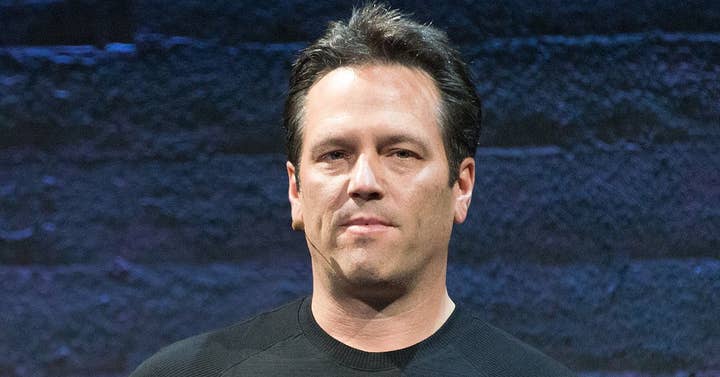Xbox experimenting with how to pay studios for Game Pass "because we don't think we have it figured out"
Phil Spencer also decries console fan tribalism as "one of the worst things about our industry"
Xbox boss Phil Spencer has given a rare insight into how the business model of Xbox Game Pass works for developers.
In an interview with The Verge, the exec said the subscription service originally paid studios based on the usage of their game, but deals have now varied to the point where they're "all over the place."
"That sounds unmanaged, but it's really based on the developer's need," he said. "A smaller to mid-sized developer might be starting a game and say, 'Hey, we're willing to put this in Game Pass on our launch day if you guys will give us X dollars now.' We'll create a floor for them in terms of the success of their game. They know they're going to get this return."
Spencer noted that in some cases, Microsoft pays for the full production cost of a game's development, but still allows developers to generate more revenue by taking their title to retail -- even for other platforms, including PlayStation, Steam and Nintendo Switch.
"For them, they've protected themselves from any downside risk," Spencer explained. "The game is going to get made. Then they have all the retail upside, we have the opportunity for day and date. That would be a flat fee payment to a developer."
He continued: "Others want [agreements] more based on usage and monetisation in whether it's a store monetisation that gets created through transactions, or usage. We're open [to] experimenting with many different partners, because we don't think we have it figured out.
"When we started, we had a model that was all based on usage. Most of the partners said, 'Yeah, yeah, we understand that, but we don't believe it, so just give us the money upfront."
Spencer added that he hopes to eventually settle on a hybrid model that's based on both usage and upfront payments.
He reiterated that Game Pass has enabled titles to be developed that wouldn't have been greenlit historically, and even suggests it is boosting more established companies like Electronic Arts by including EA Play.
"[That] was us working with our partners at EA to say, it's not about a per-title thing, let's actually bring the channel that you guys want to go drive and grow value in, called EA Play," Spencer said.
"Let's bring that to Game Pass on console and PC, so you see growth in people's attachment to your service through the distribution power of Game Pass. That's real strength for them. Actually, for a content partner like EA or someone else, it helps them create the kind of moat around their content taht says, 'No, this EA Play thing has value.' We love that."
Spencer also commented on the heated rivalry between some Xbox and PlayStation fans, which always flares up around the launch of new consoles. The Verge referred to instances in the past where a PlayStation fan has queued up for a new Xbox on day one, only to run it over with their car or smash it with a hammer -- sometimes in front of the queue of Xbox fans.
"I love the industry I'm in, this is the job I love... But that tribalism in the industry, if there was anything that would ever drive me out of the industry, it's actually that, what you're talking about," Spencer said.
"When a team releases something into the market for the world to tear it apart on the internet -- it's just such a brave thing for a team to do. I'm never going to vote against any creative team or any product team to do poorly because I have a competitive product. It's not in me. I don't actually think it helps us in the long run in the industry."
He added that in the console space especially, the "core of the core" fans -- on both sides -- have "taken it to a destructive level of 'I really want that to fail so the thing that I bought succeeds.'"
"I just really despise it. I don't think we have to see others fail in order for us to achieve the goals. We're in the entertainment business. The biggest competitor we have is apathy over the products and services [and] games that we build.
"We see that today. Everybody is doing well in the industry right now for the most part with the stay-at-home and the surge. That's what we should be focused on as an industry. We've done it with things like cross-play and other things that we focused on breaking some of those tropes. But there is a core that just really hates the other consumer product. Man, that's just so off-putting to me. Again, maybe that word is probably too light.
"To me, it's one of the worst things about our industry."

